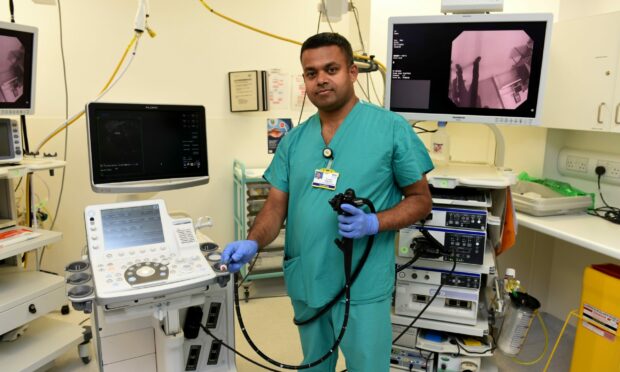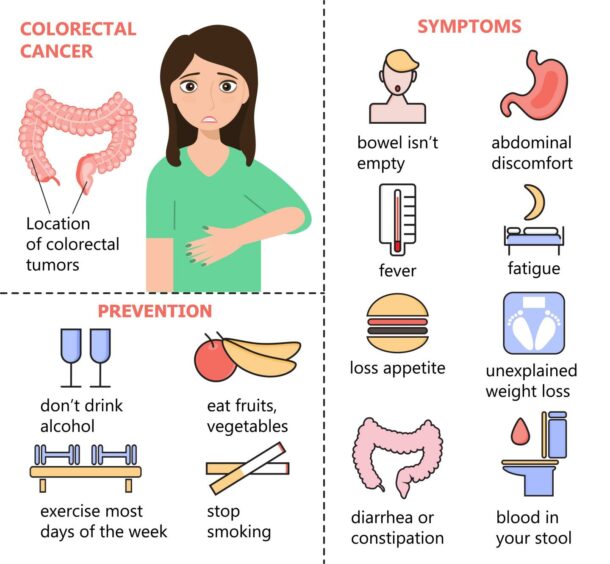Bowel cancer is a major health problem in Scotland – it’s the second most common cause of cancer death for both men and women.
Around 1,600 people are dying of the disease across the country each year.
And the latest statistics show one-fifth of all new bowel cancer diagnoses in Scotland are made in Grampian and the Highlands.
Doctors are also seeing patients getting younger, and with no family history of it – prompting calls for more research as to why.
Many patients aren’t aware of the signs of this killer disease and, by the time the symptoms do show, it can sometimes be too late.
But Aberdeen consultant gastroenterologist Umesh Basavaraju says there are ways to help reduce the risks of developing bowel cancer.
What exactly is bowel cancer?
Bowel cancer, also called colorectal cancer, affects the large bowel and is caused by abnormal cells starting to divide and grow in an uncontrolled way.
If it’s not picked up early enough, the cells can start to spread into other organs around the body.
The cancer usually starts after growths, called polyps, develop. These may turn into invasive cancer if undetected.
But you can help reduce your risk of developing bowel cancer by making healthier lifestyle choices.
What causes bowel cancer?
Bowel Cancer Awareness Month runs throughout April and Dr Basavaraju has spoken to us to highlight the risks of developing the disease.
Eating too much red or processed meat can increase your risk because of the chemicals they contain that can damage cells lining the bowel.
Drinking excess alcohol can also cause problems.
“On the other hand there are food groups which are thought to be preventative,” he says.
“For example, eating a plant-based diet and also eating a lot of berries – these have a lot of polyphenols in them which are anti-inflammatory in nature and can prevent bowel cancer.”
Obesity is a risk factor as well as a sedentary lifestyle.
Inflammation in the body can also play a factor, but research shows exercising can help reduce this.
How is bowel cancer detected and treated?
Bowel screening is offered to people aged 50 to 74 across Scotland to help find bowel cancer early.
It’s a simple test that involves sending a stool sample every two years to a laboratory where it’s checked for signs of hidden blood.
Other changes in the bowel such as pre-cancerous growths can also be detected.
Surgery is usually the main treatment for bowel cancer and can be combined with chemotherapy and radiotherapy.
Why is it so important to get an early diagnosis?
Half a million people in Scotland do bowel screening tests and you’re more likely to survive bowel cancer if it’s found early.
“If bowel cancer is diagnosed early, especially through the bowel screening programme, there’s a 90% chance of achieving a cure,” Dr Basavaraju explains.
“In symptomatic people it is more likely to be at an advanced stage.”
Dr Basavaraju, a consultant at Aberdeen Royal Infirmary who also works at Albyn Hospital, says people over the age of 50 are more at risk of developing bowel cancer.
But he encourages anyone concerned about changes in their bowel habits to seek advice from their doctor.
This includes rectal bleeding, looser stools or abdominal pain.
“We are seeing younger people developing bowel cancer. More research is needed to find out why this is.
“I’ve had patients in their early 20s with no family history of bowel cancer.
“It is a worrying trend.”



